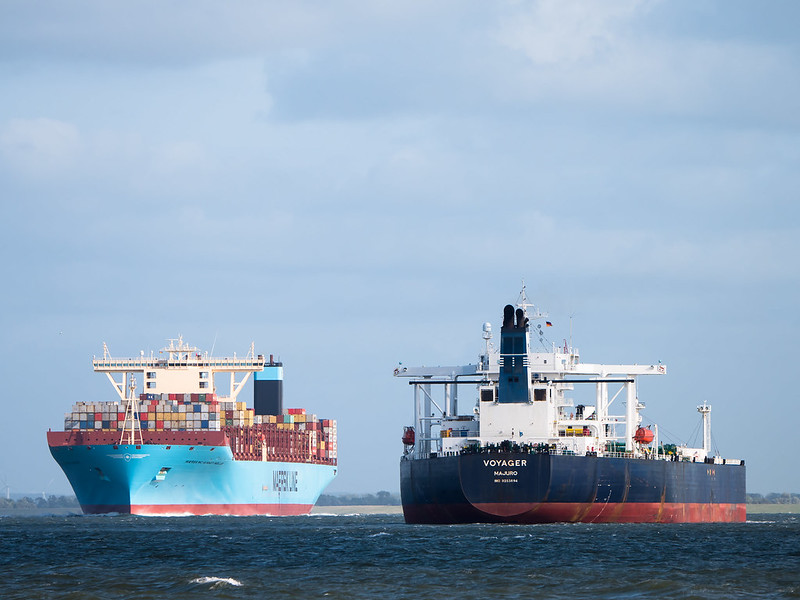Elena Sadovaya and Vinh Thai, Nanyang Technological University, Singapore
To enhance maritime security in shipping companies, a number of compulsory and voluntary regulations have been introduced at the beginning of the 21st century. However, besides benefits expected from the implementation of these regulations, they have also had negative impacts. Nevertheless, industry participants had no other choice, but to comply with these regulations in order to participate in national and international trades. For some companies, additional cost related to security implementation resulted in bankruptcy while others managed to sustain under the burden of necessary financial investments, paper work, additional manpower and time requirements. Specifically, an effective management of maritime security in those companies helped them to achieve benefits beyond security improvements, such as improved competitive position, better data management and document processing, improved cooperation with partners and government, etc.
The research article recently published in the Asian Journal of Shipping Logistics (PDF) contributes to the topic in two ways. Firstly, it introduces the Effective Maritime Security Management Model (EMSMM) for shipping companies, which has been developed based on the management approaches widely used in the industry and suggested by academics, and with a consideration of the majority of compulsory and voluntary security requirements for shipping and supply chain companies. Secondly, based on the data collected from more than 100 shipping and ship management companies around the world, it analyses the relationship between different aspects of security management and various categories of organizational performance.
According to the interviewees and surveys’ participants in this research, the following six factors are important for the effective management of maritime security in shipping companies: Security Performance, Business Resilience, Market Performance, Time Performance, Security Related Performance, and Customer Performance. The attributes related to these factors should be implemented constantly and become a part of daily organizational activities. These factors have been analyzed together with the following six categories of organizational performance of shipping companies: Security Performance, Business Resilience, Time Performance, Security Related Performance, Market Performance and Customer Performance.
It was found that the category of Security Performance is positively affected by factors of Security Policy, System and Procedures and Business Partners Security, and leads to a positive impact on Security Related and Time Performance. Besides, the category of Customer Performance, which has a positive relationship with Market Performance, is positively affected by factors of Security Policy, System and Procedures and Business Partners Security. The category of Business Resilience is found to be positively impacted by the factor of Management and Employee Commitment. Moreover, this factor together with the factor of Documentation and Communication showed positive impacts on the category of Time Performance. However, it was also found that the category of Time Performance is negatively influenced by some of the model’s factors, such as Security Policy, System and Procedures, Security Incidents Handling and Continuity of Operations, and Security Assessment. These negative relationships were expected, since it was also evidenced in the literature review about negative impacts on performance related to time. However, it is believed that the time performance should be improved when effective security management becomes an integrated part of daily activities. Besides, these negative relationships do not compromise the validity of the factors.
These results provide a solid foundation for effective maritime security management. Shipping companies are recommended to conduct periodical assessment of their organizational performance using the proposed categorization. Based on this assessment, necessary changes should be implemented according to the corresponding factors of the EMSMM.
Literature and further reading
Gutiérrez, X., Hintsa, A, J., WIESER, P. and Hameri, A. P. 2007, “Voluntary supply chain security program impacts: an empirical study with BASC member companies”, World Customs Journal 1 (2): 31-48.
Sadovaya, E. & Thai, V. V., 2015. Impacts of Implementation of the Effective Maritime Security Management Model (EMSMM) on Organizational Performance of Shipping Companies. The Asian Journal of Shipping and Logistics, 31(2), pp.195–215.
Sadovaya, E. & Thai, V. V., 2014. The Effective Maritime Security Management Model (EMSSM): a Perspective from Practicioners in Singapore. Security Journal advance online publication.
Thai, V. V. and Grewalt, D. 2007. “The maritime security management system: Perceptions of the international shipping community”, Maritime Economics andLogistics 9 (2): 119-137.
Thai, V. V. 2009. Effective maritime security: conceptual model and empirical evidence, Maritime Policy and Management: The Flagship Journal of International Shipping and Port Research, Vol. 36, No. 2, pp. 147-163.
Voss, M., Whippe, J. and Closs, D. 2009. “The role of strategic security: Internal and external security measures with security performance implications”, Transportation Journal 48 (2): 5-23.
About the Authors:
Dr Elena Sadovaya has earned a PhD at the Nanyang Technological University (NTU), Singapore. The topic of her thesis is “Effective Maritime Security Management in Shipping Companies”. Currently she is working as a senior consultant at Oliver Wyman’s office in Munich. Elena can be contacted at elena2@ntu.edu.sg.
Dr Vinh Thai is currently Assistant Professor at the School of Civil and Environmental Engineering of NTU. He holds a PhD from the Australian Maritime College (AMC), University of Tasmania in Australia, a MSc from World Maritime University in Sweden, and a BSc from Vietnam Maritime University. Prior to joining NTU, he worked as a lecturer at AMC, Asian Pacific (S) Co. Ltd – a freight forwarder and logistics service provider in Vietnam, P&O Nedlloyd Container Line Vietnam, and lately the Vietnam International Container Terminal (VICT) as Project Manager and Assistant Port Manager.
This commentary was originally published on Piracy Studies
Photo by Norbert Möller

